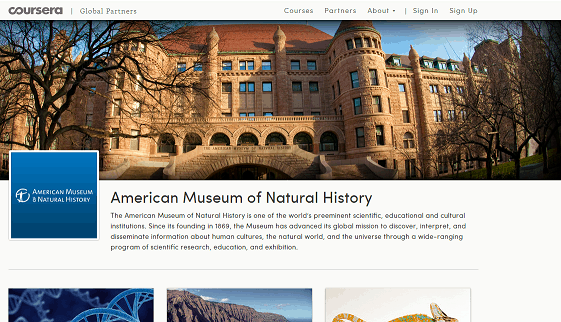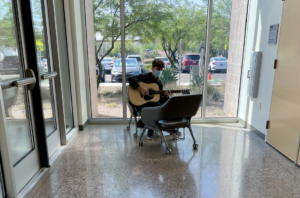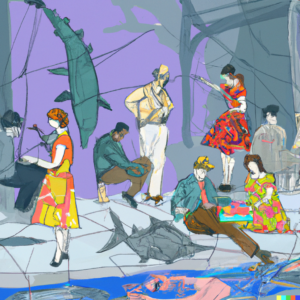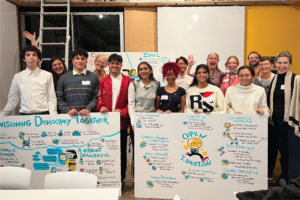Museums & MOOCs

Earlier this month, I wrote about museums and alternate models of accessibility, from mobile brain science museums to portable pop-up hands-on STEM ‘museums’. These models, although mobile, still exist in a physical space – and there’s nothing wrong with that. The Think Tank is filled with brain science technology that just isn’t available to the average person, and the whole point of the Foundation for Early Learning’s Uni project is to bring hands-on science-related activities into public spaces.
But if the worst case scenario from the news is true, the US is currently facing a STEM crisis and a looming shortage of future scientists and engineers; we’re doing a terrible job of educating not just our K-12 kids but our teachers as well, and our current approach to teacher professional development isn’t fixing things. Even as they grapple with budgets still reeling from the economic crisis, many science museums are trying to fill supplemental science education and teacher training roles. One model museums are experimenting with is the MOOC: Massive Online Open Course.
MOOCs are free-choice online educational program scalable to a massive degree. The idea is that an educator designs a course that can be delivered via the web, complete with homework. Unlike videos on, for example, a YouTube channel, MOOCs aim for interactive participation and open access. While MOOCs do face scrutiny for being over-hyped or not living up to ideals, some museums have taken the plunge.
Having already secured partnerships with elite universities such as Princeton and Columbia, MOOC hub site Coursera recently partnered with several museums to offer professional development for teachers.
Last month, the American Museum of Natural History, the Exploratorium, and the Museum of Modern Art all announced their MOOC channels on Coursera, which will provide free professional development courses. The AMNH’s first three courses will cover genetics, evolution, and Earth science, while the Exploratorium will focus on inquiry-based learning such as integrating tinkering and engineering into classroom activities.
The Exploratorium sees MOOCs as a natural outgrowth of their efforts to train science teachers. In a press release, their Associate Executive Director Rob Semper wrote, “We are constantly tinkering with new ways to expand our impact and reach those who stand to benefit the most. … Our professional development programs for teachers have had a profound impact on thousands of science classrooms in every state. To put that impact in perspective, 90% of beginning science teachers who graduated from the Exploratorium’s two-year mentoring program are still teaching science after 5 years, compared to a national average teacher retention rate of 50%. The potential to raise this impact to new heights by bringing our teaching methods online is remarkable.”
The Museum of Modern Art’s courses so far include inquiry-based teaching skills for incorporating art into the classroom. While MoMA apparently saw MOOCs as worth a try, another internationally-known art museum decided against MOOCs – at least for now. The UK’s Tate museum is known for their educational digital projects, but felt the costs associated with launching a MOOC channel outweighed the benefits. The ideal of MOOCs providing free, open learning on a global scale fit the museum’s vision, but the reality is that producing and sustaining MOOCs will require resources. In a world of limited resources, the Tate was worried about the quality of the MOOC learning experience and low course completion rates (which may be as low as 10%), as well as their ability to keep content fresh and provide appropriate tutoring for courses.
With detractors warning of a MOOC “hype cycle” and supporters proclaiming MOOCs as the real deal, I suppose – like other new models of accessibility – we’ll have to wait and see. I suspect the answer won’t be a simple “thumbs up” or “thumbs down” for MOOCs – MOOCs will likely prove to be a near-perfect vehicle for some museums and certain content while proving to be a wash for others.







0 Comments
Leave a Comment
Your email address will not be published. All fields are required.